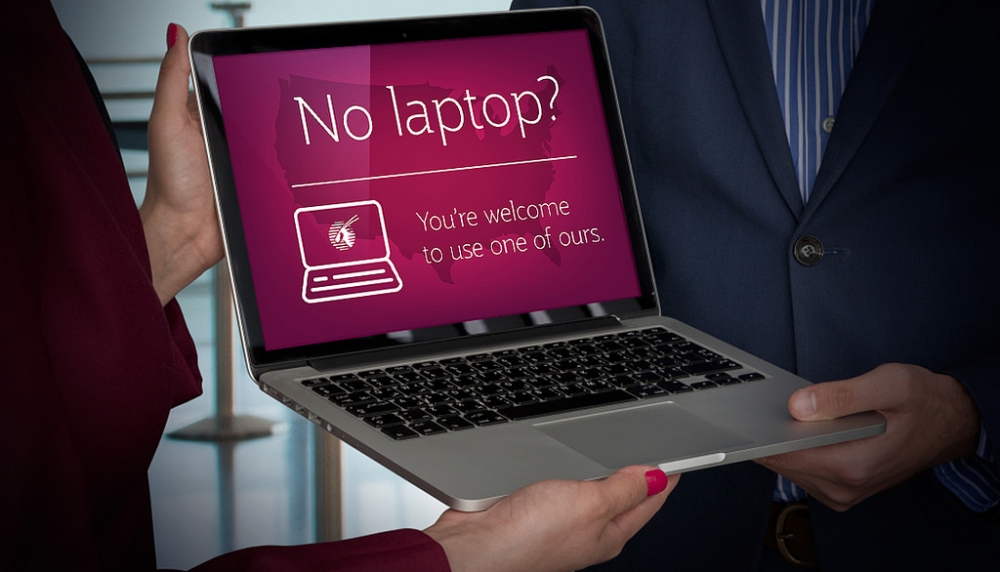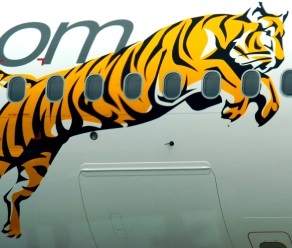Airlines welcome US move to back away from global airline laptop ban
29 June, 2017
4 min read


Airlines have welcomed a move by the US Department Homeland of Security to back away from a ban on large electronic devices in the cabins of aircraft flying to the US.
The DHS earlier this year banned electronic devices bigger than a smartphone (with exemptions for medical devices) from being carried in the cabins of aircraft operating directly to US destinations from 10 airports in the Middle East and North Africa, citing increased fears terrorists would use large electronic devices as weapons.
This week's backdown came amid strong opposition to what became known as the laptop ban from the International Air Transport Association, US allies as well as passenger and travel groups.
Homeland Security Secretary John Kelly again pointed to an increased terrorist focus on aviation as he announced on Wednesday a series of “enhanced” security measures applying to all commercial flights to the US and affecting 280 airports in 105 countries.
The measures, expected to affect an average of 2100 flights and 325,000 passengers a day, include a boost to overall passenger screening, heightened screening of personal electronic devices as well as increased security protocols around aircraft and in passenger areas.
Airports will also be expected to deploy advanced technology, expand screening by dogs and establish additional preclearance locations for travellers heading to the US. These allow international travellers to go through US customs and border security before boarding their flights.
Read: American to expand use of advanced cabin baggage scanners.
The DHS did not explain the specifics of the new requirements but said it would work with aviation stakeholders over the next several weeks or months to ensure they were fully implemented.
Those who failed to adopt the requirements within “certain timeframes’’ ran the risk of additional security restrictions being imposed, it said.
IATA welcomed the move to impose the requirements as an alternative to the laptop ban and said it would work with the DHS on a phased implementation.
“This creates a natural partnership with governments, which have the primary responsibility for security,’’ IATA director general Alexandre de Juniac said in a statement. “Today’s actions raise the bar on security. The aggressive implementation timeline will, however, be challenging. Meeting it will require a continued team effort of government and industry stakeholders.
“In particular, airlines and airports will need to be supported by host states during the phase-in of the new requirements.’’
In a speech to the Council for New American Security, Secretary Kelly said it was time to raise the baseline for global security.
“We cannot play international whack-a-mole with each new threat,’’ he said “Instead, we must put in place new measures across the board to keep the traveling public safe and make it harder for terrorists to succeed.
“Today, I am announcing a first step toward this goal by requiring new security measures to be applied to all commercial flights coming into the United States. These measures will be both seen and unseen, and they will be phased in over time.
“They will include enhanced screening of electronic devices, more thorough passenger vetting, and new measures designed to mitigate the potential threat of insider attacks.”
Kelly said the DHs would lay a clear path to encourage airlines and airports to adopt more sophisticated screening approaches.
“With this announcement, we send a clear message that inaction is not an option,’’ he said. Those who choose not to cooperate or are slow to adopt these measures could be subject to other restrictions—including a ban on electronic devices on their airplanes, or even a suspension of their flights to the United States.”
“However, we expect all airlines will work with us to keep their aircraft, their crew, and their passengers safe. I have spent months engaging with our closest allies and foreign partners on this issue, and many of them have expressed strong support for this effort.”
Next Article
3 min read
Virgin gets nod for Tiger deal

Get the latest news and updates straight to your inbox
No spam, no hassle, no fuss, just airline news direct to you.
By joining our newsletter, you agree to our Privacy Policy
Find us on social media
Comments
No comments yet, be the first to write one.
